> Aaron Sananes
Design EngineerRovu
Most tools for handling reviews were clunky or robotic. I wanted to design an experience that saved time but still sounded like the business itself.
Year
2025
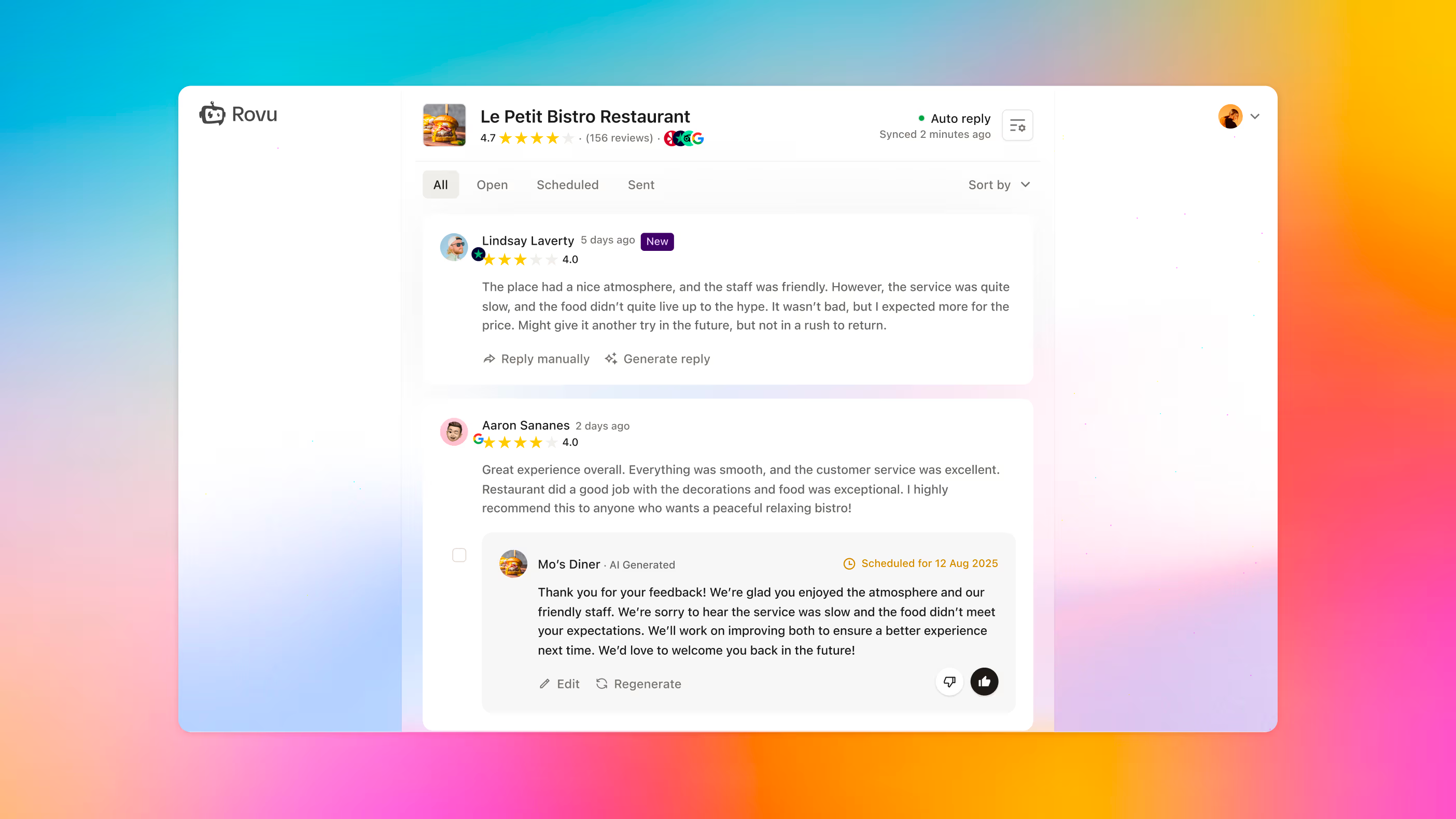
Overview
Rovu is an AI-powered platform I designed to help businesses automatically respond to customer reviews in their own voice. The goal was to solve the problem of unanswered feedback at scale — boosting trust, saving time, and improving search visibility.
Achievement
“Rovu helps us sound human, even when it’s the bot replying.”
Key metrics
- 10+Onboarded customers
- 6+Hours saved weekly
- 90%Consumers read reviews before buying
- 3xMore authentic with brand-voice AI
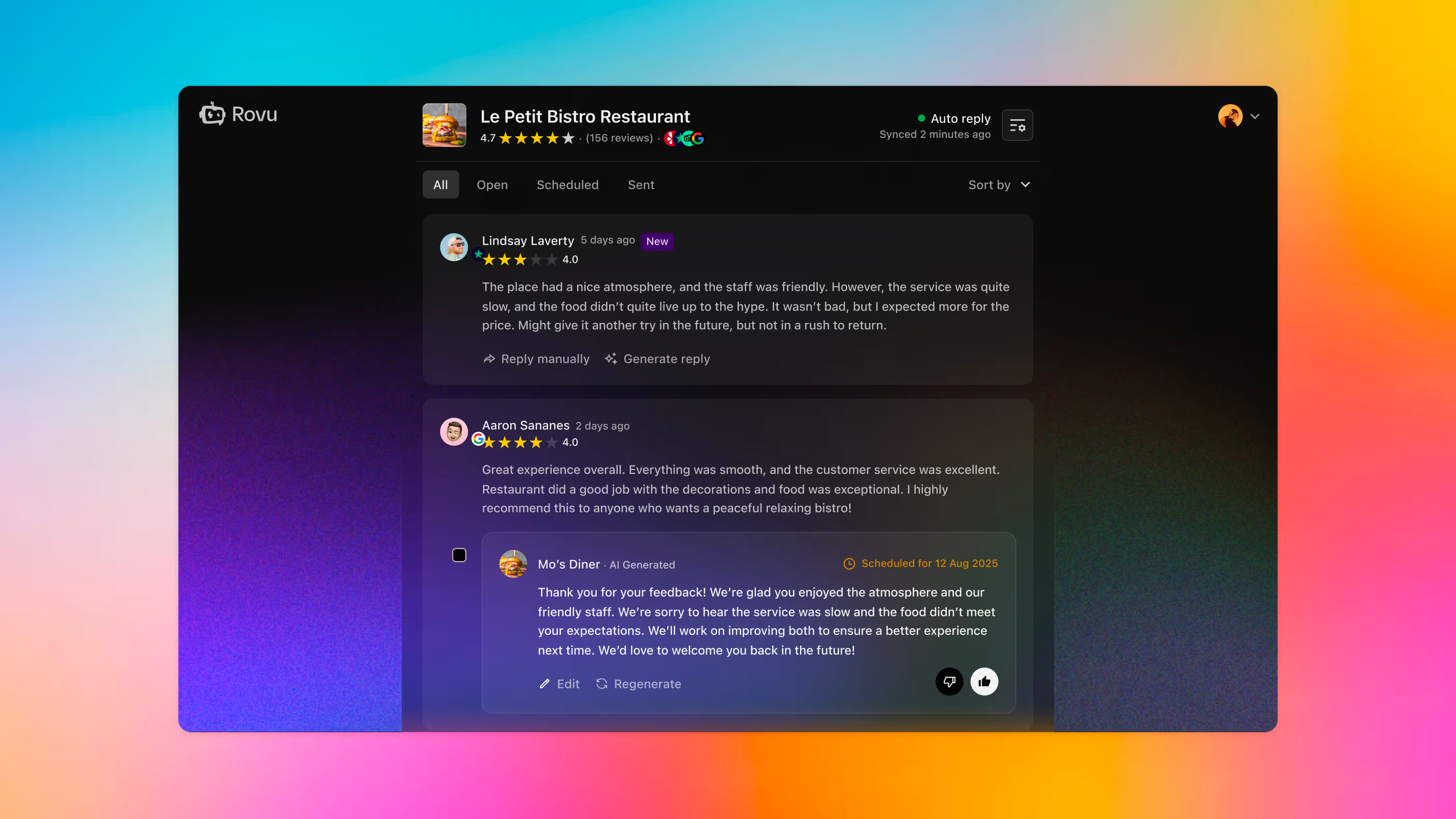
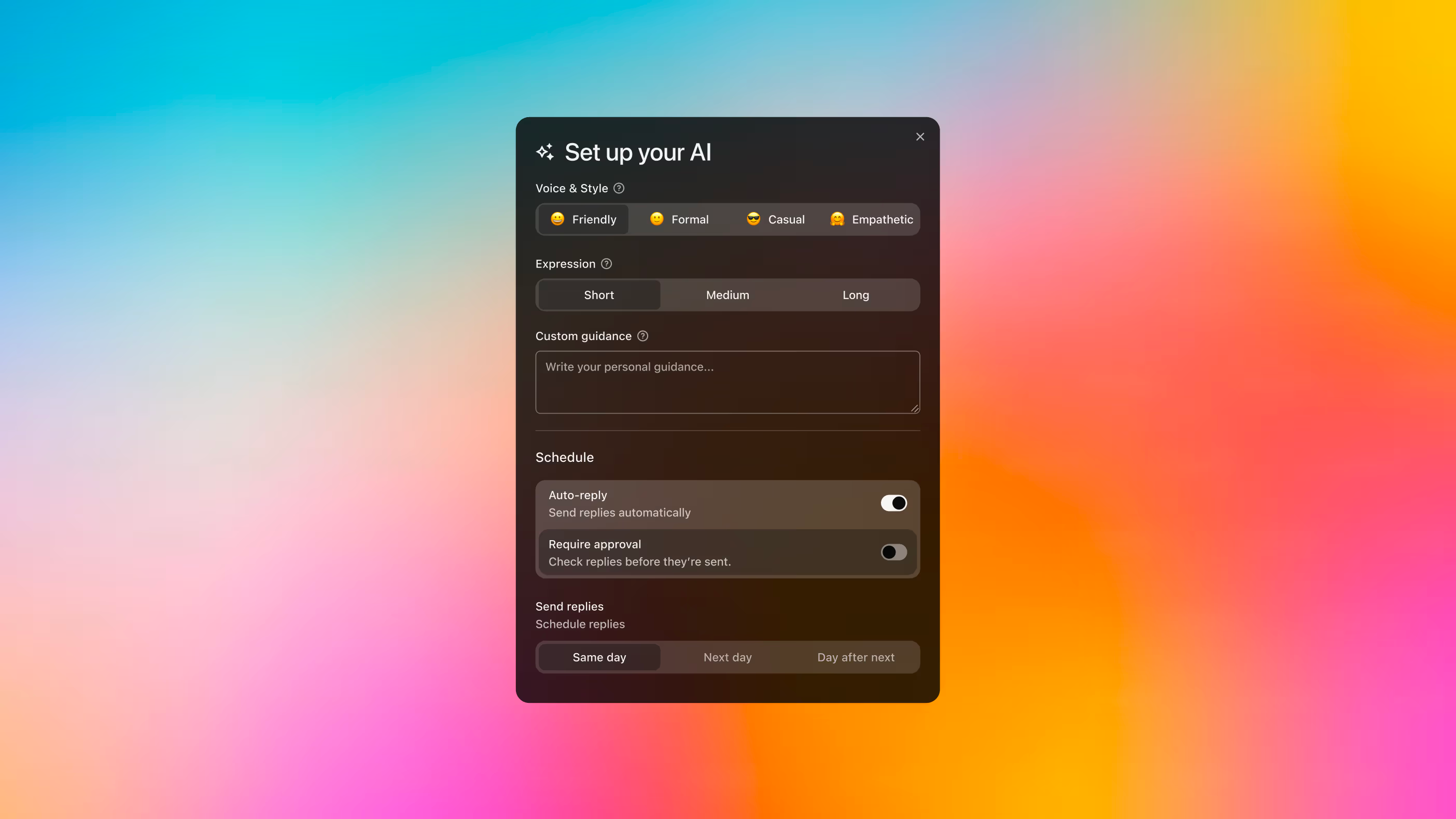
Problem
Businesses were drowning in reviews but barely responding. Positive ones slipped through, negative ones dragged reputations down, and star ratings got ignored. Small teams didn’t have the time, large teams couldn’t stay consistent, and customers noticed the silence. This gap directly hurt trust and visibility on platforms where reviews influence rankings.
Problem
We don’t have time to reply to everything.
Low response rate
Low response rate
Fewer than 20% of customer reviews were getting any reply, leaving most customers unheard.
Negative reviews lingered
Unanswered bad feedback weakened reputation and pushed businesses down in search rankings.
Manual process didn’t scale
The act of logging in, drafting, editing, and publishing was fine for a handful of reviews, but collapsed under volume.
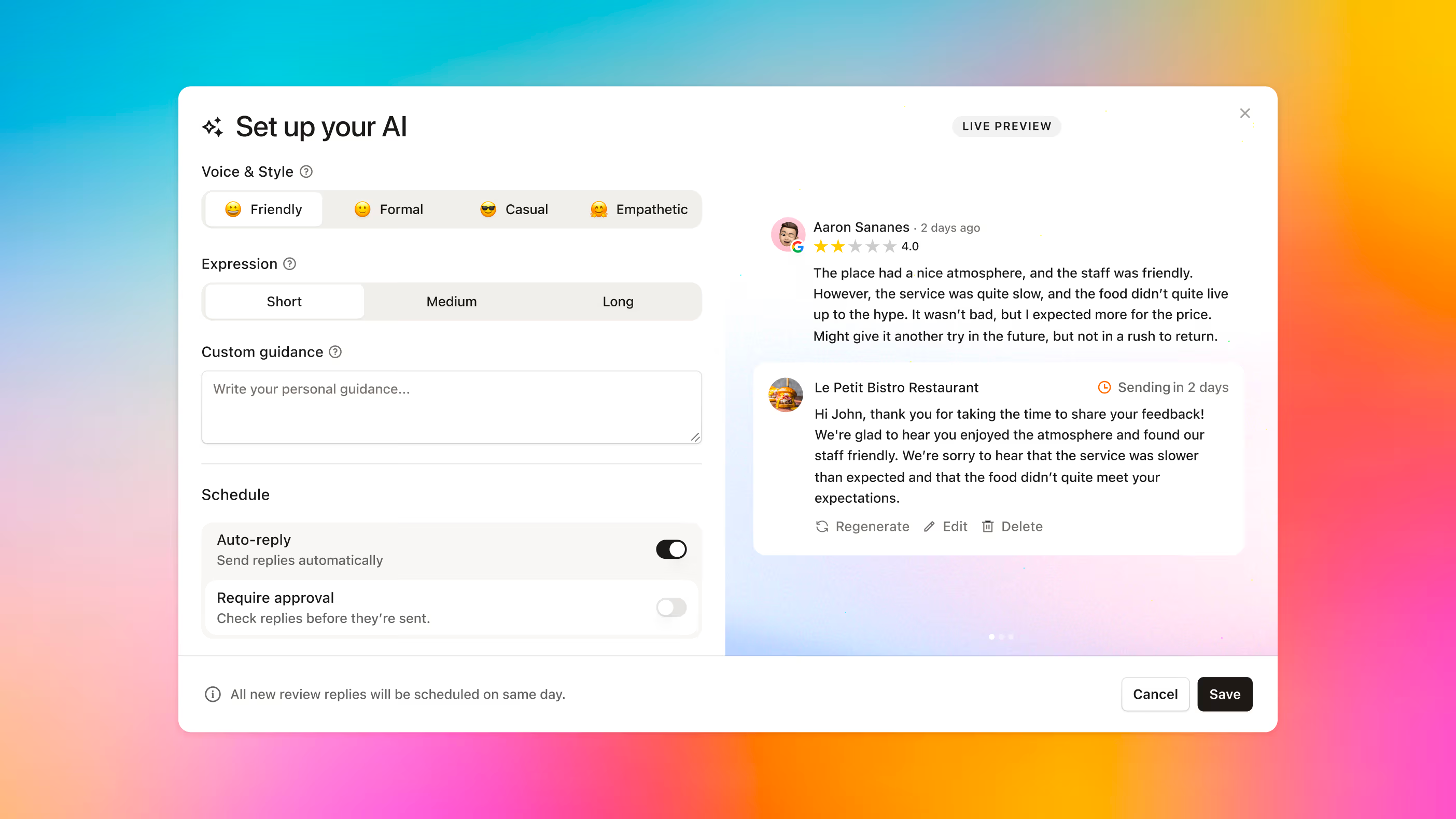
Context
By 2023, online reputation had become a deciding factor in customer choice. Over 90% of consumers read reviews before buying, yet fewer than 30% of businesses replied. Search algorithms rewarded companies that engaged, and ignored ones slipped in ranking. Meanwhile, AI tools matured enough to create human-sounding text at scale, opening the door for a smarter solution.
Context
“If you don’t reply, people assume you don’t care.”
Key decisions
Consumer behavior shift
90%+ of customers checked reviews before purchases, making them critical to sales.
Business adoption gap
Fewer than 30% of companies replied consistently, creating a big mismatch with customer expectations.
SEO connection
Search platforms ranked businesses higher when reviews were acknowledged, linking responses to real revenue.
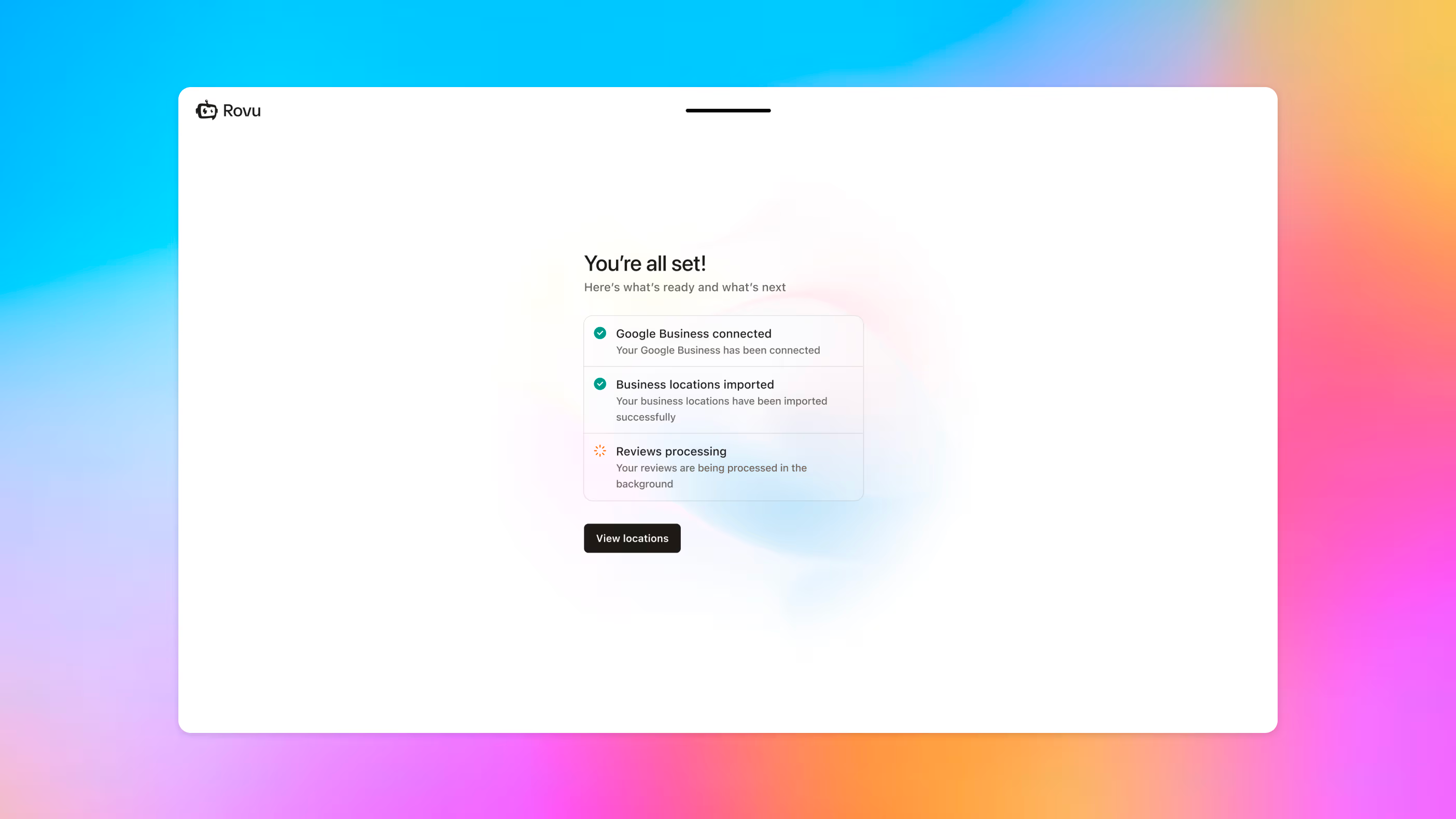
Research
I interviewed owners of small businesses and managers of multi-location chains. The same themes kept coming up: too many platforms to log into, fear of robotic replies, and no tone guidelines for staff. I mapped their workflows step by step, revealing just how repetitive and unsustainable the process was. Automation wasn’t optional — it was the only way to scale — but it had to sound natural.
Consensus
I’d use automation, but only if it sounded like me.
Key research
Workflow bottlenecks
The manual process repeated hundreds of times each week, costing hours.Testing showed brand-voice replies were 3× more accepted by owners compared to generic AI responses.
Tone authenticity
Testing showed brand-voice replies were 3× more accepted by owners compared to generic AI responses.
Competitor analysis
Existing tools sounded scripted, confirming authenticity was the differentiator.
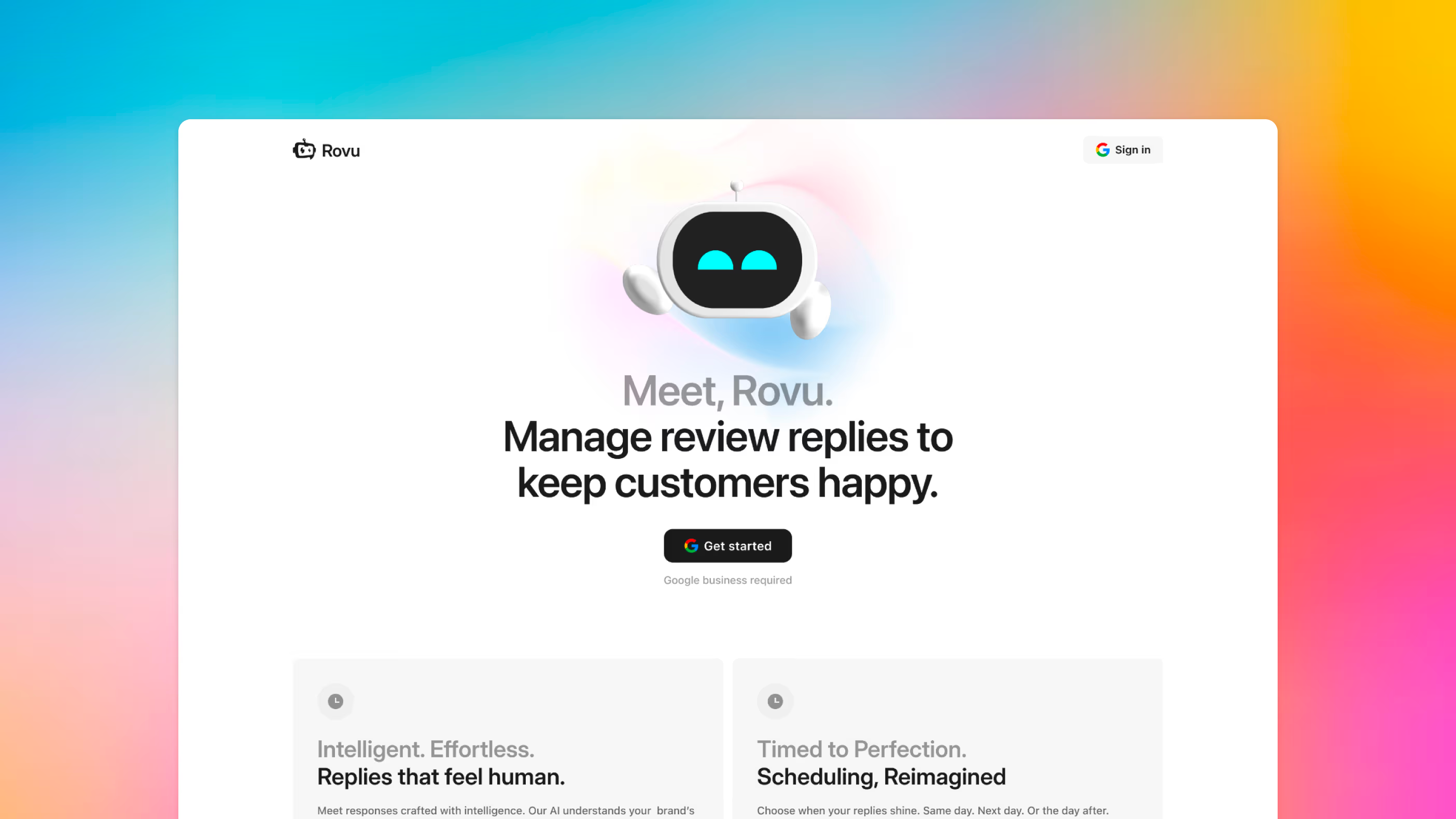
Solution
I designed Rovu, an AI-powered platform that makes review replies effortless. Businesses connect their accounts, set their preferred tone of voice, and let the system run automatically. Owners can override or adjust rules, but once activated, Rovu replies to every review on time. A design system ensured that the platform could grow easily across features and multiple locations.
Centralized dashboard
One UI for managing reviews across multiple platforms.
Brand-voice customization
Onboarding let businesses train the AI to their tone of voice, reducing fear of robotic replies.
Automation with control
An “Always On” toggle reassured owners they were still in charge.
Scalable design system
I built a design system in Figma so new features plugged in without redesign.